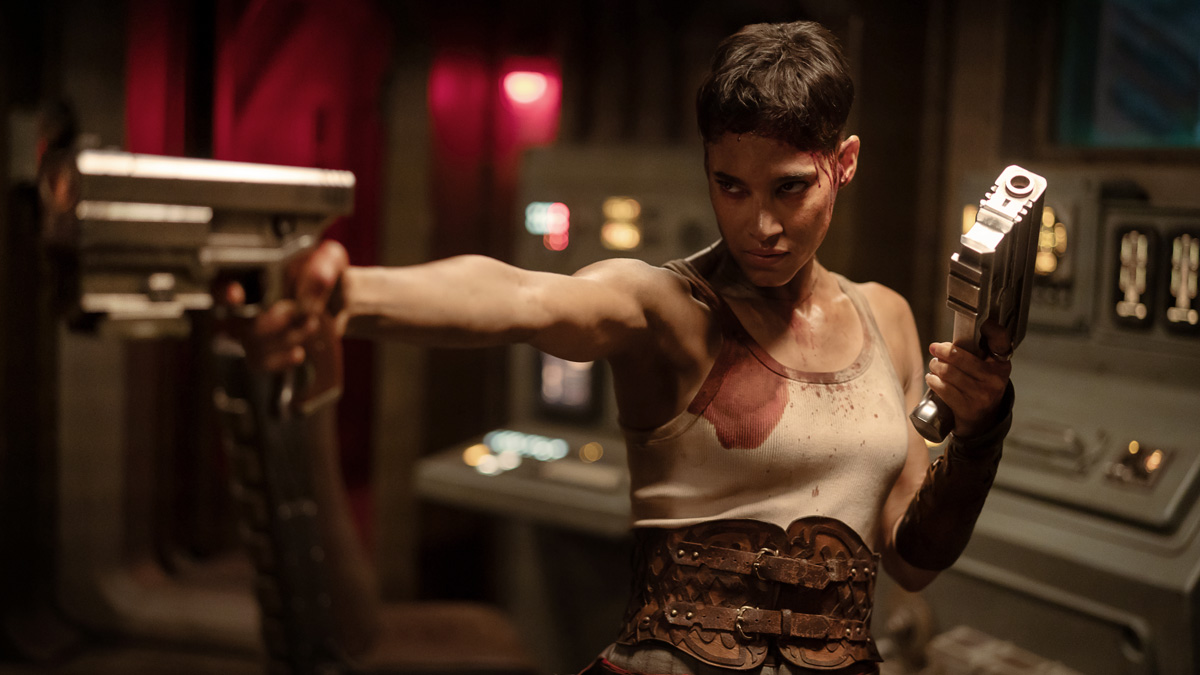
[ad_1]

Watching Rebel Moon with the subtitles on is a wild experience. Zack Snyder’s two-part sci-fi epic packs in a lot of elements, dropping the viewer into a far-flung future world consumed by conflict. Lest you think that any element you see is just there at random, though, the subtitles often point to a greater depth of world-building behind the scenes.
The first living creature we see in Part 1 isn’t just an alien plowhorse — [Uraki whinnies and snorts], the caption tells us. In Part 2, we get a little song from Djimon Hounsou, or as the caption explain, [Titus sings in Fon]. And a key weapon doesn’t just stab into someone: [Krypteian blade trills], we see on screen.
What is a “Krypteian blade”? No idea, but the answer likely lies somewhere on Zack Snyder’s hard drive, where one imagines that an entire story bible of details exists to set up his strange sci-fi universe. It’s theoretically impressive to know that all those details exist, that Snyder has developed the language spoken by an oppressed people or come up with the names for all the planets ruled over by the evil civilization known as the Motherworld. Yet these details are meaningless to the casual viewer.
And when a new sci-fi franchise like Rebel Moon attempts to blast off in pop culture, all it has to begin with are casual viewers, those intrigued enough by the premise, the genre, or the talent involved to watch. If said franchise is lucky, those casual viewers become casual fans, maybe even the sort of devoted follower who might make a point of remembering what kind of blade it was that did the stabby-stabby. But Rebel Moon doesn’t feel like it’s going to be lucky in this regard.
Instead, Snyder’s space opera exists largely as a reminder that the space opera genre is not an easy one to conquer, especially considering what’s come before. Rebel Moon doesn’t bother with an opening crawl laying out the facts of this world in bold yellow print — instead, Anthony Hopkins narrates the story of a galaxy on shaky political terms, following the assassination of an unseen royal family.
From there, the film focuses its opening minutes on establishing the simple farming community of Veldt, with Corey Stoll’s bold performance and confusing accent work offering the only real spark of life; Sofia Boutella’s Kora, our ostensible protagonist, fails to make any impact as that protagonist. Kora’s a character who’s keeping a lot of secrets, which thanks to Snyder’s direction means that she gives the viewer nothing to engage with — this is a trait that defines pretty much anyone else in these films with significant screen time, even including the eclectic gang of warriors recruited to help Kora and her faithful pal Gunnar (Michiel Huisman).
[ad_2]
Badejo Titilope
Okay